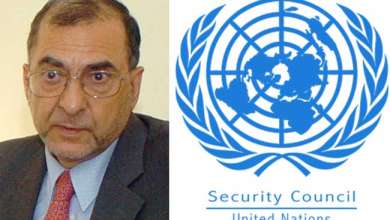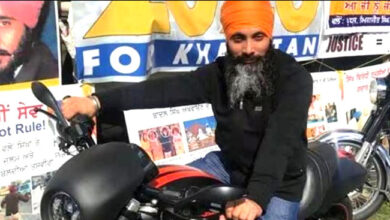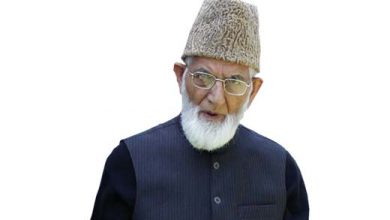UN Forum Can Transform Lives of Millions Through SDGs

Washington, D.C. July 10, 2023: To debate, deliberate and discuss the progress on Sustainable Development Goals (SDGs) , United Nations, Economic and Social Council (ECOSOC) convened a meeting on Monday, July 10, 2023 at UN headquarters in New York. The forum will meet for next 10 days. Ambassador Lachezara Stoeva, President of ECOSOC, and Bulgaria’s Ambassador to the UN described the forum meeting “the opportunity to build political momentum for the Summit, as well as identify key policy priorities to be addressed.”
Dr. Ghulam Nabi Fai, Chairman, ‘World Forum for Peace & Justice’ appreciated the ambitious agenda of the forum in particular the objective to have a more detailed evaluation of the assistance to ‘be provided to the countries with specific needs in achieving’ the SDGs. Dr. Fai pointed out that in deprived and convulsed countries, the average longevity is but half that age. While citizens of some African and Asian countries are starving, the rich countries are beset with obesity. Discrepancies of these types are morally disturbing. The United Nations is ideally suited to ending these shocking inequalities because it hosts all the nations of the world and endows each with identical voting power in the General Assembly. The poorest and the weakest are equal to the richest and the strongest.
One of the objectives of the forum in 2023 is to ‘conduct in-depth reviews of several SDG’s including ‘Clean Water and Sanitation’. Dr. Fai explained that a clean environment is essential to global sustainable development because pollution is more than twice cursed. It damages crops. It kills lakes and rivers. It occasions disease and illness through water and air, for example, lead poisoning or cholera. And it may even cause the submersion of entire island nations through global warming as witnessed in July 2023 worldwide. A clean environment, therefore, is a key element of community fairness and justice. The United Nations should thus consider drafting a convention on global pollution. The idea would be to make nations pay in damages for the injuries caused to the people of other nations by pollutants which cross international boundaries. The recipient nations would be obligated to distribute the damages to injured citizens
Fai mentioned that the most urgent approach to promoting global partnership for sustainable development is the ending of warfare. War, whether intramural or international, wreaks havoc on the elements necessary for health, housing, education, employment, the rule of law, the environment, and happiness generally. A perfect case is that of Ukraine. War also arrests economic development. Capital flight is staggering. Foreign investment withers. Infrastructure is destroyed. Lawlessness hikes the risks of any business enterprise. The consequence is widespread poverty. War also creates a culture antithetical to democracy and the rule of law. It teaches that disputes should be resolved by the bullet in lieu of the ballot box. The case in point is the unresolved Kashmir conflict which resulted in two wars between India and Pakistan. And a third war is eminent if the dispute remains unresolved. This time it will not be conventional but nuclear one and a danger for international peace and security.
“Another urgent global sustainable development objective should be universal literacy and education. As Socrates explained, the unexamined life is not worth living. Or as philosopher Sam Johnson amplified, there is the same difference between the learned and unlearned as between the living and the dead. And as Quran says, “Are those equal, those who know and those who do not know, 39:9.” These observations are made not to deride or degrade the uneducated, but to underscore the criticality of education to making life morally meaningful and fulfilling between ashes to ashes and dust-to-dust” Dr. Fai observed.
Next on the list of global sustainable development priorities should be the ending of all racial, ethnic, or class hatreds or enmities. Think of the horrifying quantity of violence in the world whose fundamental cause can be traced back to such social divisions. It infects every country on the planet. And if even one person suffers from invidious discrimination, then all are threatened, and civilization has been tarnished. The United Nations is ideally suited to fashion a program to achieve the desired result. It can assemble the best thinkers and models to draft laws and educational programs that will deter and prevent the abomination of sharp social divisions.
Dr. Fai put forth a few closing observations about the entire global sustainable development enterprise. It is characteristic that national or international organizations employ quantitative benchmarks to measure success in meeting enumerated objectives. For instance, a longstanding objective has been for each nation to contribute a specified percentage of its gross domestic product for humanitarian or foreign aid. Companion quantitative benchmarks have been set for literacy, vaccinations, annual income, longevity, smoking, etc. There is nothing inherently mischievous about these development yardsticks. But they should never distract from our recognition that the highest in sustainable development consists of non-quantifiable
Dr. Fai is the Secretary general, World Kashmir Awareness Forum.
He can be reached at: 1-202-607-6435. gnfai2003@yahoo.com





